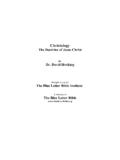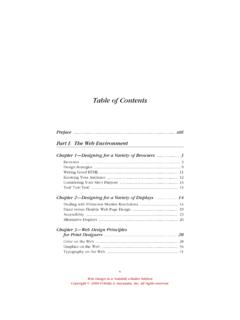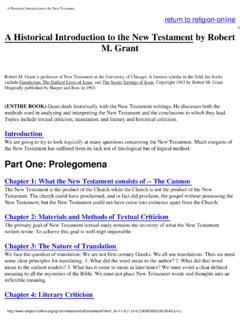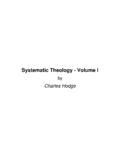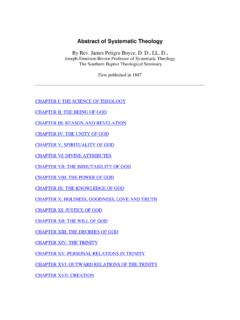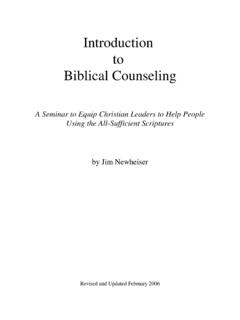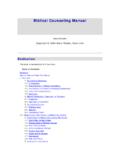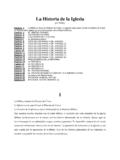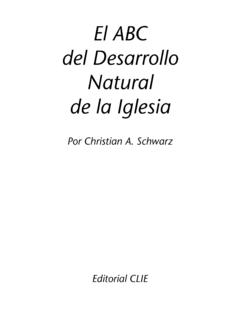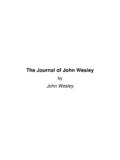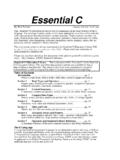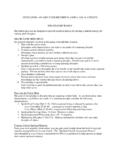Transcription of BB Introduction update - NTSLibrary
1 BibleBibleIntroductionIntroduction101 Barry E. HornerBIBLE Introduction 101 vi bible BASICS iINTRODUCTION Rarely is it disputed that the bible is the most influential book that mankind has encountered. However it must be honestly confessed that, at least in much of Western society, which arguably was born through the agency of the bible , increased secularity has been paralleled by a decline in understanding and interest in this incomparable volume. The aim of this course is to start with the proposition that belief, or indeed unbelief, cannot be exercised unless there is comprehension of the truth of the bible . Faith, as is so wrongly understood, is not the response to abstract thought, to sentiment and tradition; it is not a leap in the dark.
2 Rather faith is a leap in the light; it is the embrace of truth. Granted that faith does not necessarily grasp the totality of truth, yet it lays hold of sufficient truth that is regarded as being worthy of commitment to its claims. So here we start with learning the truth about the bible in a summary manner. We must learn its anatomy as well as something of the flesh that adheres to this form. However we must also grasp that for the human authors employed, the truth contained in Scripture has supernatural vitality that far transcends mere literary structure. If we simply stop at the arrangement of the bible , we are in danger of dying of thirst when a soul quenching spring is before our very eyes. So we take seriously the prescription of Jesus Christ: You will know the truth, and the truth will make you free (John 8:32).
3 bible Introduction 101 ii bible BASICS iiiTABLE OF CONTENTS I. Introduction . II. Selecting a bible . III Operational Mechanics. IV. Reading the bible with Profit. V. The Canon of the bible . VI. The Languages of the bible . VII. Interpreting the bible . VIII. A Brief Survey of bible History. A. The Major Events of the bible B. The Major Characters of the bible . IX. The Major bible Covenants. X. The Names of God. XI. Apologetic Considerations of Christianity. A. Three schools of Apologetics B. Proofs of the Existence of God. C. Proofs of the Resurrection of Jesus Christ. D. Proofs of the Authority of the bible . XII. Basic bible Doctrines. A.
4 The Doctrine of God. B. The Doctrine of Scripture. C. The Doctrine of Jesus Christ. D The Doctrine of the Holy Spirit. E. The Doctrine of Man. 1361519243051516073818686878890107107109 111111111 bible Introduction 101 iv F. The Doctrine of Salvation. G. The Doctrine of Christian Growth. H. The Doctrine of the Church. I. The Doctrine of Future Events. 112115116118 bible Introduction 101 FOUNDATIONAL STUDIES IN THE WORD OF GOD I Introduction A. The book that we are about to study is the most influential volume that the human race has ever encountered, in spite of many feverish attempts to burn, ban, and blaspheme it. 1. On this fact alone the bible demands the most serious study and investigation, whatever our presuppositions or bias about it may be.
5 2. When the present Queen of England was crowned, the Archbishop of Canterbury presented her with a copy of the Authorized Version of the bible and the accompanying exhortation: Our gracious Queen: to keep your Majesty ever mindful of the Law and the Gospel of God as the rule for the whole life and government of Christian Princes, we present you with this Book, the most valuable thing this world affords. Here is wisdom; This is the royal Law; These are the lively Oracles of 3. Today the current president of the United State, George W. Bush, tells us that: I read the bible regularly.. I read through the bible every other year. During the years in between, I pick different chapters to study at different times. I have also learned the power of prayer.
6 I pray for guidance. I do not pray for earthly things, but for heavenly things, for wisdom and patience and 4. Hence, only a fool or bigot would ignore such a legacy, yet we live in an appallingly illiterate age insofar as the bible is concerned. bible and study aids abound, but biblical ignorance yet more abounds! 5. Whatever the student s attitude may be toward the bible , the presupposition of this study is that it is the very Word of the only living God. There will be repeated references to evidence, both from within and without this volume, that this conclusion is true. B. The various names given to the bible . 1. The Holy bible . a. It is holy, sacred, or set apart from that which is common, and set apart unto that which is especially to be revered.
7 It is not like any other book, since it has come from the mouth of a holy God (II Tim. 3:15-16; I Pet. 1:15-16), and for this reason it is to be treated reverently. 1 F. F. Bruce. The English bible , p. 224. 2 George W. Bush, A Charge To Keep, pp. 137-38. bible Introduction 101 2 b. It is a book, bible being derived from the Greek, , biblion, having the root meaning of a type of reed from which papyrus was made. In the time of Jesus Christ it referred to either a parchment scroll or a collection of papyrus sheets. 2. The Holy Scriptures. a. This is common terminology in the New Testament division of the bible . Paul writes concerning the gospel of God .. in the sacred/holy Scriptures/writings [gr matta, gramatta] (Rom.)
8 1:1-2). These are the sacred/holy Scriptures/ writings which are able to give you the wisdom that leads to salvation through faith which is in Christ Jesus, and thus are Scripture [graf , graph e], expired by God (II Tim. 3:15-16). b. Hence, it is truth inscripturated, that is written down through the use of words taught by the Holy Spirit (I Cor. 2:12-13; I Peter 1:20-21). It is a concrete, not fluid, objective, not subjective, propositional revelation, that is a tangible record as distinct from subjective dreams, visions, opinions, or truth by consensus (Jer. 23:28-29). 3. The Word of God, or the Word of the Lord. Other names include the oracles of God (Acts 7:38), the Word of God (Eph. 6:17; Heb. 4:12; II Pet.
9 3:5), and the word of the Lord as repetitively used in Jeremiah (cf. 1:2, 4, 11, 13). 4. A fundamental presupposition. In view of the preceding references concerning the bible s consistent claims to be the Word of the only true and living God, the presupposition of this study is that this claim is authentic. Other evidence in this regard will be supplied later in this manual. Further, it is believed, according to the Apostle Peter, that no prophecy of Scripture is a matter of one s own interpretation, for no prophecy was ever made by an act of human will, but men moved by the Holy Spirit spoke from God (II Pet. 1:20-21). Here authority is preserved in confluence. In other words, while God has used human agency in the writing of the books of the bible , as was the case with Mary being the human agent and mother of Jesus Christ, yet the Spirit of God so inspired these writings that they consequently were preserved from error, in the same way that Jesus Christ was preserved from sin at birth and throughout his life (Luke 1:35; II Cor.
10 5:21; Heb. 4:15; 7:26; I John 3:5). Hence the wise student of the bible will pray to God that He, through the illumination of His Spirit, will grant a true understanding of His Word (Ps. 119:18). In other words, this course will regard the bible as more than religious literature. 5. Homework exercises. a. What various terms describe the Scriptures or Word of God in Psalm 119? b. What does Jesus Christ say about Scripture or Word of God in John 10:35; 17:17? c. What does the Apostle Paul say about Scripture in II Timothy 3:16-17? bible Introduction 101 3II SELECTING A bible A. Choose a bible that is first of all accurate and precise, and not a paraphrase that nevertheless may have colloquial appeal. 1. Our first concern must be truth, God s intended meaning, not linguistic trendiness, cultural novelty, or personal preference.
